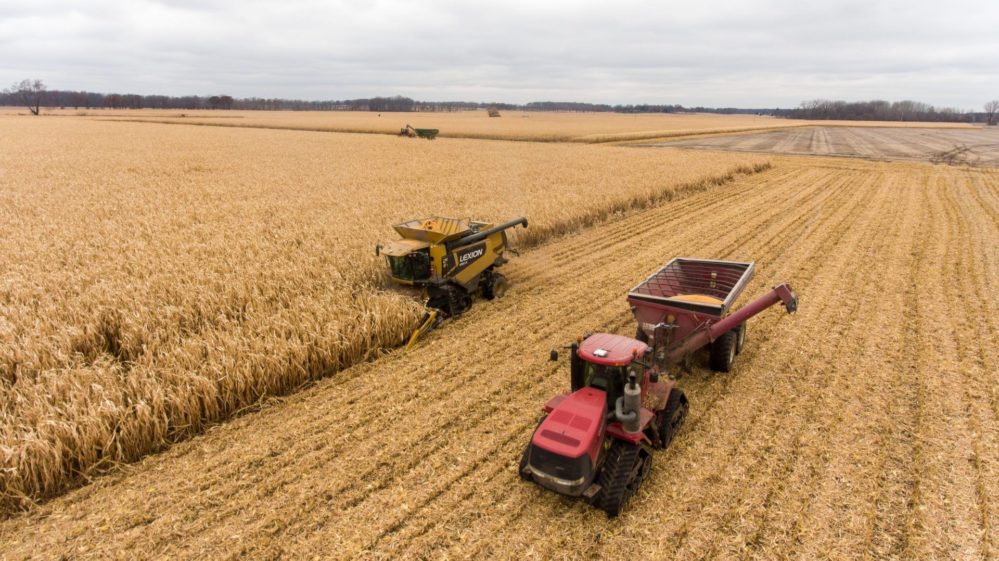Carbon credit markets are fast becoming the accessory du jour for agtech companies.
Joining the list are Farmers Edge and Radicle. The Canadian duo recently announced a partnership to create what they describe as a new high-tech carbon credit program powered by real-time field data.
Carbon credit markets have been touted by many as a way to encourage farmers to adopt new practices that fight climate change, while generating additional income in the process. Food companies, too, are showing interest in ‘decarbonizing’ their supply chains or sourcing different ingredients with lower carbon footprints.
Farmers Edge and Radicle — headquartered in Winnipeg and Calgary, respectively — will launch their project in phases. They’ll begin by streamlining their existing programs in Canada, before branching into the US market.
Radicle will manage the development process with a focus on maximizing the value of growers’ credits.
Farmers Edge will provide the technology for carbon management, including tools to measure sustainability metrics, quantify soil health, track agronomic practices, and identify when growers can qualify for carbon credits.
Second kick
Farmers Edge has been dabbling in this space for a number of years. During the 2014 Winter Olympic Games in Sochi, Russia, it worked with Corteva Agriscience on a special project to help Russian farmers generate carbon credits. It participated in a similar scheme for the 2016 Summer Olympics in Rio de Janeiro, Brazil.
But after that, wider interest in ag carbon credits seemed to peter out, says Farmers Edge CEO Wade Barnes.
“Four or five years ago, I was losing a sense of where this was all going to go. I was really excited thinking that it was going to take off but it never really got traction,” he tells AFN.
“Then, there were a few announcements from the [US Department of Agriculture] and it looks like there is a second kick at this.”
To date, Radicle has assisted Canadian farmers with generating $53 million in carbon credit-derived revenue. Alberta, which has the largest carbon footprint of all the Canadian provinces, created a carbon market as a way to offset greenhouse gas emissions. Farmers Edge and Radicle are hoping that they are now well-positioned to take advantage of any similar developments that spring up in the US.
Skepticism, regulatory concerns
Some are skeptical of such marketplaces, noting a lack of consistency in the standards that are used to measure carbon or calculate credits. A number of different protocols will likely emerge – but all of them will come back to a need for granular data, according to Barnes.
“We know the key ingredients they will most likely have to use, like soil testing data, that is accurate to obtain a baseline. Then, being able to verify yield,” he says.
“We are not actually pushing out protocols, so to speak. We are waiting for them to be announced and then we are going to go out and execute on them. We’re feeling really good in that when these protocols come to life, there aren’t going to be many companies that are going to be able to actually execute on them.”
Farmers Edge is anticipating a few challenges as the carbon credit market concept continues to develop. When Alberta attempted to launch its nitrous oxide protocol, for example, the provincial government made it too complicated, in Barnes’ opinion. Most farmers weren’t able to take advantage of it. He has similar concerns regarding government oversight for the US market, which is becoming a hotly debated topic.
US federal legislators recently introduced the Growing Climate Solutions Act which, among other things, seeks to create a certification for technical service providers in the ag carbon credit space. Reactions to the proposed legislation have run the gamut, with many stakeholders preferring that the government stay out of it.
“There has to be a fine line between making something real and making it so complicated and so regulated that you can’t actually bring it to life,” says Barnes.
Another area of debate is the value of the credits that farmers generate. With major ag players like Cargill showing interest in creating or participating in carbon credit markets, there may be widely divergent approaches to valuation.
‘We are not all in’
Barnes is wary that the wider carbon credit ecosystem still has a long way to go. That’s why Farmers Edge is hedging its bets.
“There are companies talking about big numbers. There are some companies that are all in on this,” he says.
“We are not all in. We see this as part of our business. We work with growers to implement technology, we’re about data – so we can help that farmer create that offset, and Radicle can help them find a market for it and get value. But if the market doesn’t develop it’s not going to be the end of the world for us.”
Last month, at the same time that it debuted free membership, US-based Farmers Business Network launched its answer to carbon credit markets. The new offering, called Gradable, allows farmers to share information about their practices, such as fertilizer application, tillage, and cover cropping. Gradable will process this alongside FBN’s in-house data to validate it and provide a farm-level sustainability score, with the idea that the farm can then claim credits.
Fellow US agtech firm Indigo Ag has also been busy getting in on this burgeoning space with Indigo Carbon, its marketplace that connects carbon credit purchasers with farmers using certain sequestration practices.





